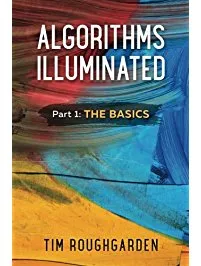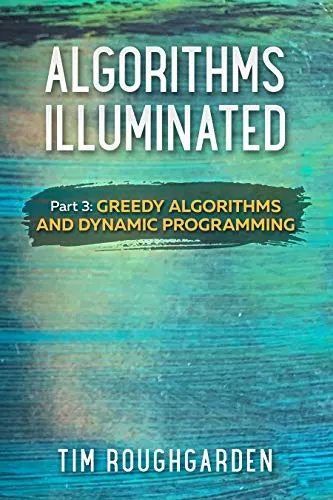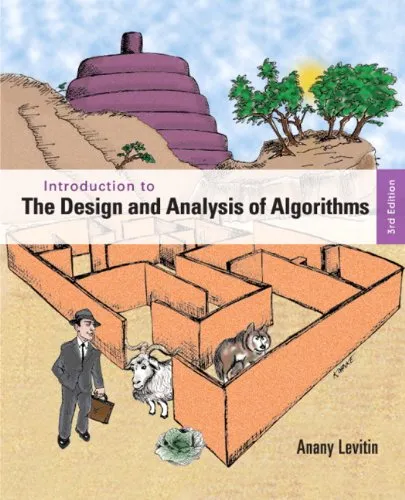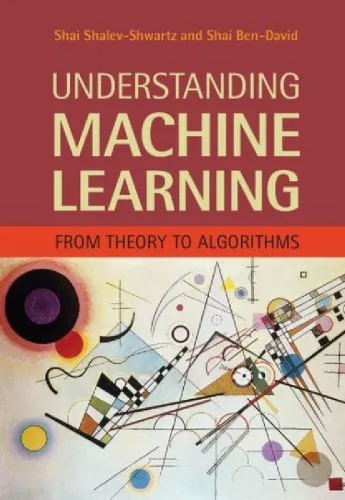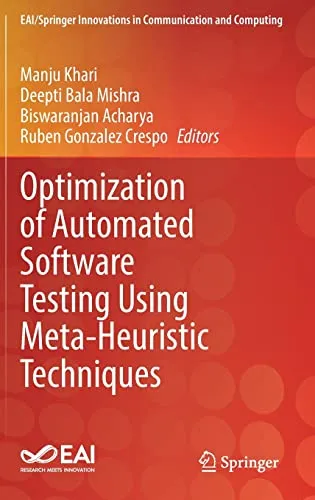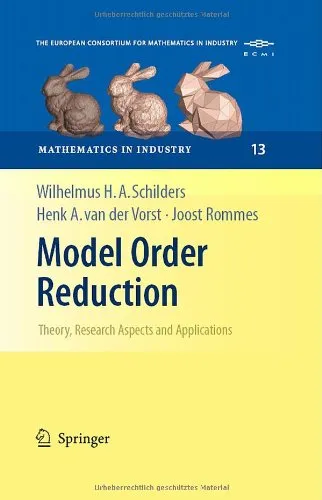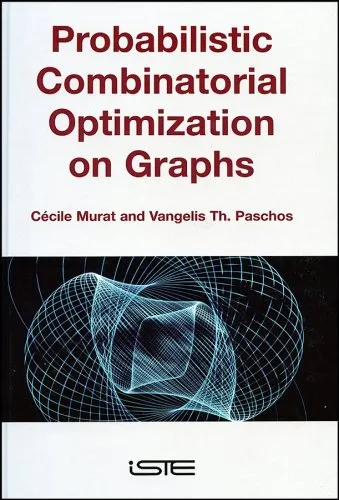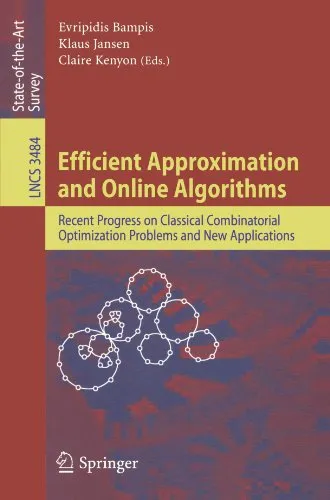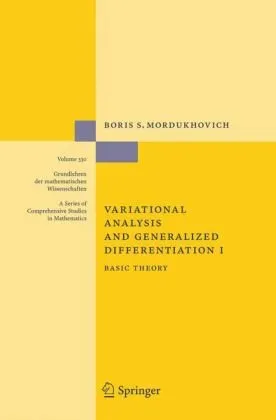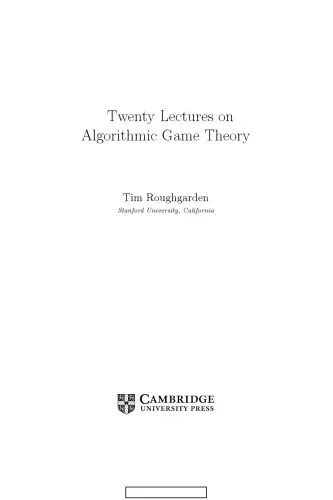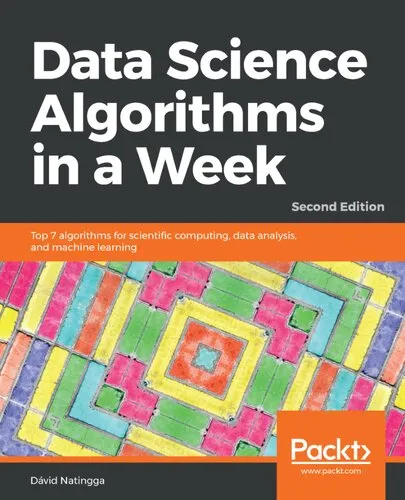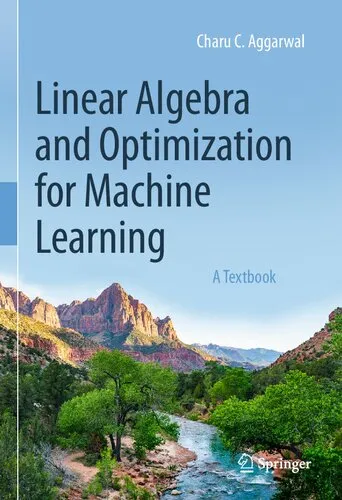Advanced Symbolic Analysis for Compilers: New Techniques and Algorithms for Symbolic Program Analysis and Optimization
3.7
Reviews from our users

You Can Ask your questions from this book's AI after Login
Each download or ask from book AI costs 2 points. To earn more free points, please visit the Points Guide Page and complete some valuable actions.Related Refrences:
Introduction
Welcome to Advanced Symbolic Analysis for Compilers: New Techniques and Algorithms for Symbolic Program Analysis and Optimization, a pioneering work that delves into the innovative intersection of compiler design and symbolic program analysis. This book serves as a comprehensive guide for researchers, academicians, students, and engineers striving to push the boundaries of modern compiler optimization techniques. By combining theoretical depth with practical applications, this book provides new insights into how symbolic analysis can transform the efficacy of program execution and optimization.
Symbolic analysis plays an integral role in unlocking the potential of software optimization. Unlike conventional compiler analyses, symbolic analysis thrives on the interplay between symbolic expressions and program constructs, enabling a highly precise understanding of program behavior. In today’s computational era, where performance, adaptability, and scalability are critical, mastering these advanced techniques is imperative for creating efficient compilation processes. With this objective in mind, this book stands as a key resource to bridge the theoretical advancements and hands-on implementations of symbolic program analysis.
Detailed Summary
The book explores a rich variety of symbolic analysis techniques suited for modern compilers, emphasizing their applications in program optimization. It begins by laying the foundational principles of symbolic program analysis, discussing how symbolic representations can be used to capture relationships between program variables and execution paths. Successive chapters delve into advanced algorithms used for loop optimization, code transformation, parallelization, and data dependence analysis.
Among its strengths is the practical demonstration of symbolic analysis in tackling real-world challenges. Case studies and examples are strategically incorporated to ground complex theoretical concepts in practical contexts, helping readers better understand their significance in addressing common optimization pitfalls. Furthermore, this book addresses state-of-the-art innovations such as symbolic range analysis, interprocedural optimization, and automatic parallelization, making it a contemporary and essential addition to compiler-related literature.
Another focal point of the book is its discussion of complexity and scalability. It analyzes the computational costs of various algorithms, providing readers with balanced insight into trade-offs between precision and performance. Researchers will find this particularly valuable when deciding appropriate optimization methods for unique software and hardware environments.
Key Takeaways
- Learn the fundamentals of symbolic program analysis and its role in compiler design.
- Understand cutting-edge techniques, algorithms, and tools for advanced program optimization.
- Explore the practical applications of symbolic analysis in loop optimization, automatic parallelization, and code transformation.
- Gain insights into balancing computational cost and analytical precision in symbolic analysis frameworks.
- Get acquainted with real-world use cases and examples to solidify theoretical understanding.
Famous Quotes from the Book
"Symbolic analysis is not merely about understanding code; it’s about understanding the intent and potential of the program beyond its textual representation."
"Optimization is not just an act of saving computation—it is an art of balancing precision, performance, and practicality."
"By leveraging symbolic expressions, compilers transform from mere translators to intelligent agents optimizing code at an unprecedented scale."
Why This Book Matters
In the ever-expanding horizon of computational science, the importance of efficient compilation cannot be overstated. This book matters because it addresses the core challenges of optimizing modern programs whose complexity often defies traditional methods. Symbolic analysis provides a lens to see beyond basic input-output mappings and enables a deeper comprehension of how programs operate under the hood. By adopting these methodologies, today’s developers and researchers can craft software solutions that exemplify both speed and scalability.
Moreover, symbolic analysis opens doors for innovation in areas such as high-performance computing, artificial intelligence, system modeling, and embedded systems programming. It equips engineers with tools to create smarter, more adaptive compilers capable of navigating the intricacies of modern program architectures. As computational challenges grow multidimensional with evolving hardware and software demands, this book shines a spotlight on how symbolic program analysis can drive forward the next generation of compiler design and optimization.
Free Direct Download
You Can Download this book after Login
Accessing books through legal platforms and public libraries not only supports the rights of authors and publishers but also contributes to the sustainability of reading culture. Before downloading, please take a moment to consider these options.
Find this book on other platforms:
WorldCat helps you find books in libraries worldwide.
See ratings, reviews, and discussions on Goodreads.
Find and buy rare or used books on AbeBooks.
1289
بازدید3.7
امتیاز0
نظر98%
رضایتReviews:
3.7
Based on 0 users review
Questions & Answers
Ask questions about this book or help others by answering
No questions yet. Be the first to ask!

